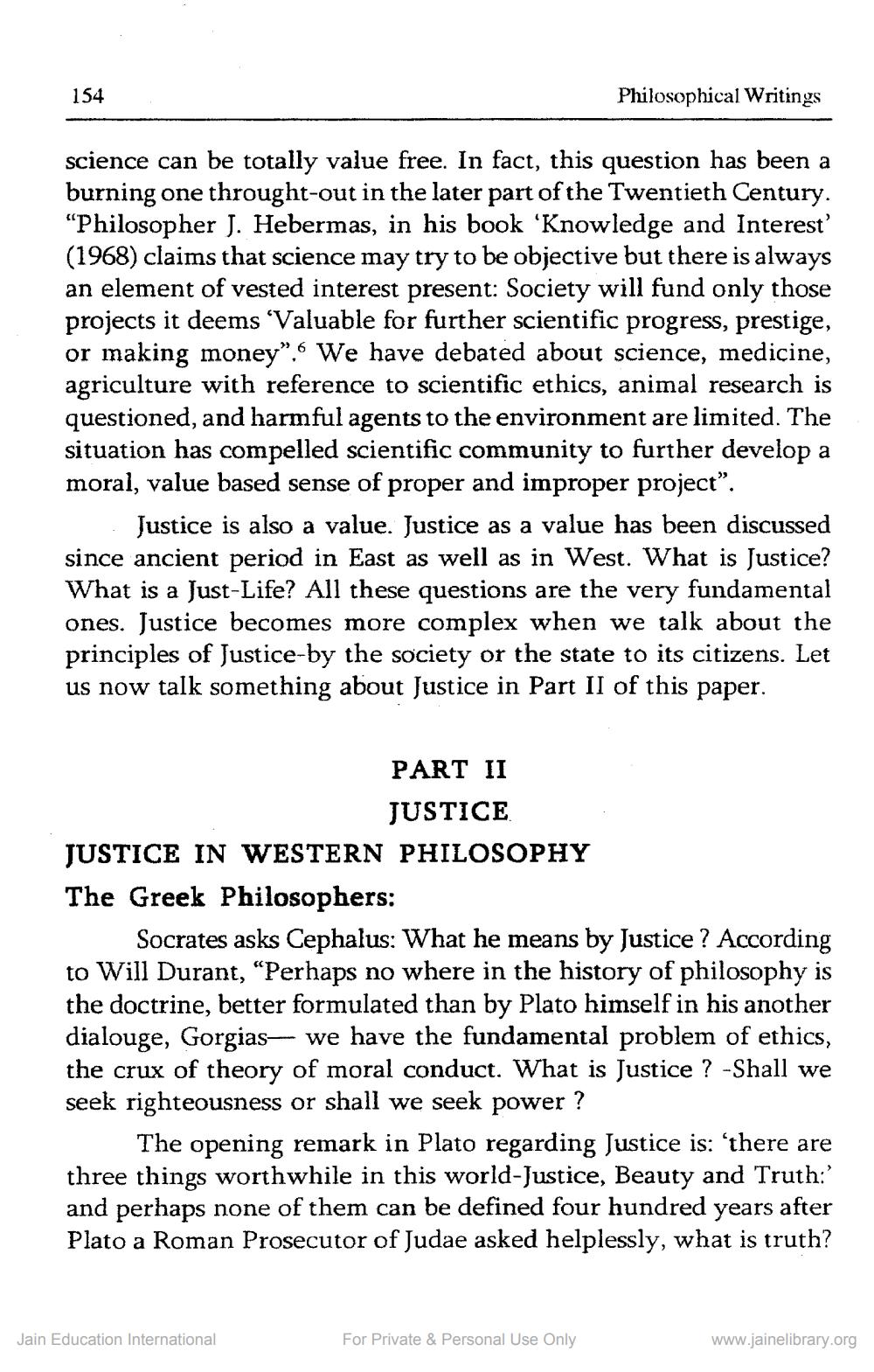________________
154
Philosophical Writings
science can be totally value free. In fact, this question has been a burning one throught-out in the later part of the Twentieth Century. "Philosopher J. Hebermas, in his book 'Knowledge and Interest' (1968) claims that science may try to be objective but there is always an element of vested interest present: Society will fund only those projects it deems ‘Valuable for further scientific progress, prestige, or making money”. We have debated about science, medicine, agriculture with reference to scientific ethics, animal research is questioned, and harmful agents to the environment are limited. The situation has compelled scientific community to further develop a moral, value based sense of proper and improper project”.
Justice is also a value. Justice as a value has been discussed since ancient period in East as well as in West. What is Justice? What is a Just-Life? All these questions are the very fundamental ones. Justice becomes more complex when we talk about the principles of Justice-by the society or the state to its citizens. Let us now talk something about Justice in Part II of this paper.
PART II
JUSTICE JUSTICE IN WESTERN PHILOSOPHY The Greek Philosophers:
Socrates asks Cephalus: What he means by Justice ? According to Will Durant, “Perhaps no where in the history of philosophy is the doctrine, better formulated than by Plato himself in his another dialouge, Gorgias- we have the fundamental problem of ethics, the crux of theory of moral conduct. What is Justice ? -Shall we seek righteousness or shall we seek power ?
The opening remark in Plato regarding Justice is: 'there are three things worthwhile in this world-Justice, Beauty and Truth:' and perhaps none of them can be defined four hundred years after Plato a Roman Prosecutor of Judae asked helplessly, what is truth?
Jain Education International
For Private & Personal Use Only
www.jainelibrary.org




